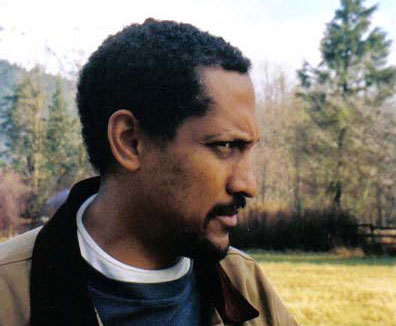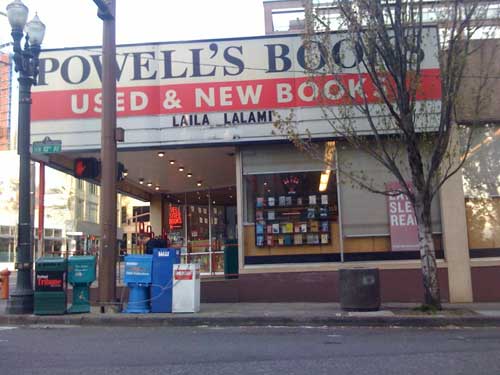Quotable: Percival Everett

The passage below is from Percival Everett’s Erasure, from the scene in which Thelonious ‘Monk’ Ellison, a writer and professor, visits a bookstore in Washington, DC and doesn’t find his books where he expects them to be.
While Lisa wandered off to the garden book section, I stood in the middle of Border’s thinking how much I hated the chain and chains like it. I’d talked to too many owners of little, real bookstores who were being driven to the poorhouse by what they called the Wal-Mart of books. I decided to see if the store had any of my books, firm in my belief that even if they did, my opinion about them would be unchanged. I went to Literature and did not see me. I went to Contemporary Fiction and did not find me, but when I fell back a couple of steps I found a section called African American Studies and there, arranged alphabetically and neatly, read undisturbed, were four of my books including my Persians of which the only thing ostensibly African American was my jacket photograph. I became quickly irate, my pulse speeding up, my brow furrowing. Someone interested in African American Studies would have little interest in my books and would be confused by their presence in the section. Someone looking for an obscure reworking of a Greek tragedy would not consider looking in that section any more than the gardening section. The result in either case, no sale. That fucking store was taking food from my table.
Of course, it’s at this point that he comes across a poster advertising a reading by newcomer Juanita Mae Jenkins, author of We’s Lives In Da Ghetto, whose first line is My fahvre be gone since time I’s borned and it be just me an’ my momma an’ my baby brover Juneboy. There’s only one thing for poor Thelonious to do: write his own ‘ghetto novel,’ which he calls My Pafology. (He later changes the title to an expletive, and the publisher gets even more excited about potential sales.) Some time ago, I was joking with some friends online that I should try to write something like My Pafology, but for ‘my people.’ You know, cash in, while I can. After all, there are dozens of books purporting to diagnose what is wrong with Arabs and Muslims, so one more couldn’t hurt. It would be called Killer Instinct and it would give insight into how we (every single one of us) are raised to kill the infidel. But it seems that irony doesn’t really travel well online.



